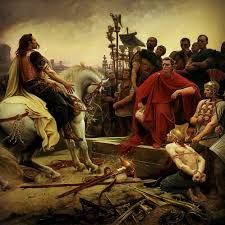
Introduction
The date 12th July holds great significance in various historical, cultural, and political contexts around the world. It is often remembered for a multitude of events that have shaped societies and influenced change. From historic battles to cultural celebrations, this day resonates with various communities. Understanding the importance of this date reveals insights into its ongoing relevance in contemporary discussions.
Historical Events on 12th July
Throughout history, 12th July has been marked by significant occurrences. One of the most notable events includes the Battle of the Boyne in 1690, where the Protestant King William of Orange defeated the Catholic King James II of England. This battle sparked a series of tensions in Ireland, leading to ongoing conflict between Catholic and Protestant communities. The anniversary of this battle is celebrated each year by Orangemen, particularly in Northern Ireland, reflecting the lasting impact on national identity and community relations.
In addition to this battle, 12th July is celebrated as Malala Day in recognition of Malala Yousafzai’s bravery and her fight for girls’ education following her attack by the Taliban in 2012. This day serves as a reminder to promote educational rights for children globally and raises awareness about the struggles many girls face in accessing education.
Cultural Observances
Beyond historical events, 12th July is also a day for cultural observances. Various countries have different celebrations, reflecting their unique traditions and values. For instance, many in the United Kingdom participate in parades and festivities linked to the aforementioned Battle of the Boyne, especially within loyalist communities.
Conversely, in some nations, it is a day of reflection and solidarity to address ongoing social issues exacerbated by the historical events connected to the date. These cultural practices highlight a broader social consciousness regarding historical injustices and community cohesion.
Conclusion
In conclusion, the significance of 12th July extends beyond its historical events; it serves as a focal point for societal reflection, identity, and cultural celebration. As various communities around the globe commemorate the day, the ongoing discussions about its implications stress the relevance of understanding history’s role in shaping contemporary societal dynamics. Looking ahead, the dialogues surrounding 12th July will likely continue to evolve, influencing educational and cultural initiatives aimed at fostering unity and understanding among diverse groups.
You may also like

The Importance of Nations in Modern Society

Understanding National Events and Their Significance

The Significance of the West in Today’s World
SEARCH
LAST NEWS
- Remembering Wendy Richard: The Promise to Co-Star Natalie Cassidy
- How Did Anglian Water Achieve an ‘Essentials’ Rating for Mental Health Accessibility?
- Shai Hope Leads West Indies in T20 World Cup Clash Against South Africa
- What We Know About Weston McKennie: Future at Juventus and Past at Leeds
- What We Know About the Upcoming Live Nation Antitrust Trial